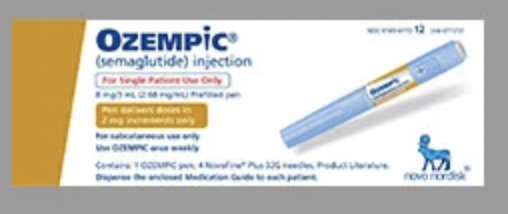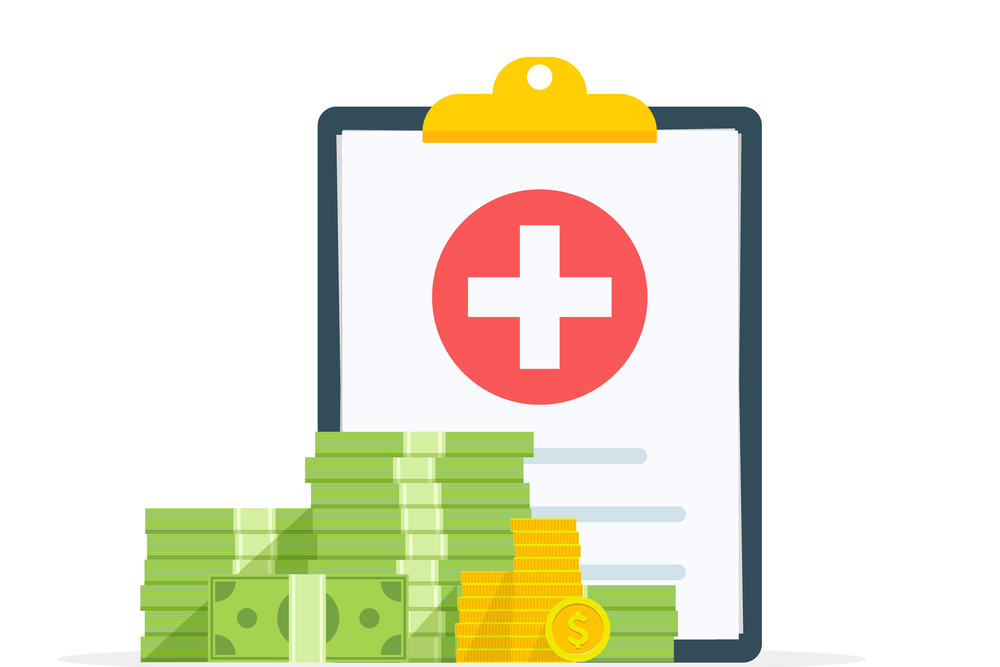Zoloft vs Lexapro: A Comprehensive Comparison of Two Leading SSRIs
By: Noah W Chung | PharmD
In the treatment of mental health disorders like depression and anxiety, Selective Serotonin Reuptake Inhibitors (SSRIs) are often prescribed as first-line treatments. Among the most popular SSRIs are Zoloft (sertraline) and Lexapro (escitalopram)—each with its own strengths, side effect profiles, and clinical indications. While both drugs are designed to regulate serotonin levels in the brain, understanding their nuanced differences can help patients and clinicians make informed treatment decisions. This article offers a deep-dive into Zoloft vs. Lexapro, comparing their usage, effectiveness, tolerability, interactions, and cost.
What Are Zoloft and Lexapro?
Zoloft (Sertraline)
Zoloft, the brand name for sertraline, is an SSRI approved by the FDA in 1991. It’s widely prescribed and used to treat:
Major depressive disorder (MDD)
Obsessive-compulsive disorder (OCD)
Panic disorder
Social anxiety disorder
Post-traumatic stress disorder (PTSD)
Premenstrual dysphoric disorder (PMDD)
Zoloft is often praised for its versatility and broad scope of indications, making it a go-to SSRI for many practitioners.
Lexapro (Escitalopram)
Lexapro is the brand name for escitalopram, FDA-approved in 2002. It is the S-enantiomer of citalopram, designed to be more potent and have fewer side effects. It is primarily used to treat:
Major depressive disorder (MDD)
Generalized anxiety disorder (GAD)
While it has fewer FDA-approved indications than Zoloft, Lexapro is known for its tolerable side effect profile and often a first line agent for physicians.
How Do They Work?
Both Zoloft and Lexapro work by blocking the reabsorption (reuptake) of serotonin in the brain. This action increases serotonin availability in the synaptic space, which can improve mood, emotional regulation, and anxiety symptoms.
Zoloft may also affect dopamine reuptake at higher doses, which could enhance motivation and focus in some patients.
Lexapro is a more selective SSRI , acting almost exclusively on serotonin transporters, reducing the likelihood of off-target effects.
Lexapro vs Zoloft: Key Differences and Similarities
To provide a quick side-by-side comparison, here is a comprehensive table outlining key attributes, including clinical uses, dosing, and cost:
Attribute | Zoloft (Sertraline) | Lexapro (Escitalopram) |
|---|---|---|
FDA Approval Year | 1991 | 2002 |
Drug Class | SSRI | SSRI |
Common Uses | MDD, OCD, PTSD, Panic Disorder, PMDD, SAD | MDD, GAD |
Mechanism | Inhibits serotonin reuptake; slight dopamine reuptake effect | Selective serotonin reuptake inhibitor |
Starting Dose | 25–50 mg/day | 5–10 mg/day |
Maximum Dose | 200 mg/day | 20 mg/day |
Half-life | ~26 hours | ~27–32 hours |
Time to Effect | 2–6 weeks | 1–6 weeks |
Generic Available | Yes | Yes |
Common Side Effects | Diarrhea, nausea, insomnia, sexual dysfunction | Fatigue, nausea, headache, sexual dysfunction |
Weight Gain Risk | Moderate | Low to moderate |
Withdrawal Symptoms | Dizziness, irritability, insomnia | Dizziness, irritability, fatigue |
Pregnancy Category | C (potential risk) | C (potential risk) |
Drug Interactions | Moderate (CYP2D6 and CYP3A4) Major (CYP2B6) Minor (CYP2C19,CYP2C9,CYP3A4,CYP2D6) | Lower (CYP2C19) (CYP2C19, CYP2D6, CYP3A4) |
Black Box Warning | Yes – suicidality risk in young people | Yes – suicidality risk in young people |
Cost (Generic) | $4–$15/month with discount; avg $0.30–$0.50/day | $5–$20/month with discount; avg $0.50–$0.75/day |
Brand Name Cost | ~$400/month retail without insurance | ~$390/month retail without insurance |
Annual U.S. Prescriptions (2022) | ~39.9 million | ~30.8 million |
Indicated for Children? | Yes (OCD, ages 6–17) | Yes (MDD, ages 12–17) |
Safe in Pregnancy? | Often preferred; considered relatively safe | Less studied; generally safe but with monitoring |
Breastfeeding | Safe – low levels in breast milk | Likely safe – but with limited data |
Effectiveness in Treating Depression and Anxiety
Major Depressive Disorder (MDD)
Numerous studies show that both Zoloft and Lexapro are equally effective in treating depression. However, some evidence suggests Lexapro may be slightly more effective and better tolerated overall, especially in head-to-head trials.
One 2009 meta-analysis comparing 12 SSRIs found escitalopram had the highest efficacy and acceptability, making it a preferred choice for first-line treatment in some guidelines.
Anxiety Disorders
Zoloft has a broader range of anxiety-related indications including social anxiety, PTSD, and panic disorder
Lexapro is highly effective for GAD and often better tolerated for individuals with sensitive stomachs or a history of side effects from antidepressants.
Zoloft vs Lexapro: Side Effects and Tolerability
Zoloft
Common side effects:
Diarrhea
Insomnia
Nausea
Sexual dysfunction
These tend to appear early and may fade over time. Some users report emotional blunting or agitation at higher doses.
Lexapro
More frequently associated with:
Fatigue
Nausea
Dizziness
Sexual side effects
However, Lexapro is often better tolerated than Zoloft, particularly in older adults and those new to SSRIs.
Drug Interactions
Both medications interact with the cytochrome P450 enzyme system, but Lexapro has fewer interactions overall.
Zoloft: Interacts with CYP2B6 and to a lesser extent CYP2C19, CYP2C9, CYP3A4 and CYP3A4, potentially affecting medications like selected beta blockers, antipsychotics, and pain relievers.
Lexapro: Primarily affects CYP2C19, CYP2D6 and CYP3A4 and may affect similar like drugs, however has been found to have which has fewer known interactions.
Patients taking multiple medications may find Lexapro safer in terms of pharmacokinetics.
Cost and Availability
Generic Versions
Both medications are available as generics and are widely covered by insurance.
Zoloft (sertraline): Generic tablets cost $4–$15/month at most pharmacies. Using a savings card can reduce the price even further.
Lexapro (escitalopram): Slightly more expensive, ranging from $5–$20/month, depending on pharmacy and location.
Brand Name Costs
Without insurance, brand-name prices can be exorbitant:
Zoloft: ~$400/month
Lexapro: ~$390/month
Since both have effective generic versions, most doctors prescribe the generic form unless there’s a specific reason to opt for the brand.
Withdrawal and Discontinuation
Stopping either medication suddenly can cause SSRI discontinuation syndrome, which includes symptoms like:
Brain zaps
Irritability
Flu-like symptoms
Dizziness
Anxiety
To reduce risks, a gradual taper over several weeks is recommended, particularly for those on higher doses or long-term treatment.
Use in Special Populations
Pregnancy and Breastfeeding
Zoloft has been studied more extensively in pregnant women and is generally considered safer for use during pregnancy and postpartum, including breastfeeding.
Lexapro is usually considered safe but has less robust data. Use should be carefully weighed against the risks of untreated depression.
Children and Adolescents
Zoloft is approved for OCD in children aged 6–17
Lexapro is approved for MDD in adolescents (12–17)
Both carry black box warnings regarding increased suicidality in children and adolescents, so close monitoring is essential.
Prescription Trends and Market Share
According to recent prescription data, Zoloft filled approximately 39.9 million prescriptions in 2022, making it one of the top 10 most prescribed psychiatric medications in the U.S. Lexapro followed closely with around 30.8 million prescriptions, reflecting its growing popularity, particularly among patients with generalized anxiety disorder (GAD). The trend shows an increasing shift toward Lexapro among first-time SSRI users due to its favorable side effect profile.
Patient Adherence Rates
Adherence to SSRIs is crucial for long-term treatment success. Studies have shown that Lexapro tends to have higher adherence rates, with up to 78% of patients remaining on treatment at six months, compared to about 65% for Zoloft. The improved tolerability and fewer early side effects are likely contributing factors.
Remission and Response Rates
In clinical trials, both Zoloft and Lexapro achieve remission in 40–60% of patients within 8 to 12 weeks. Meta-analyses suggest Lexapro may offer slightly higher remission rates in moderate to severe depression. For example, one study reported a 52% remission rate for Lexapro vs. 45% for Zoloft over a 12-week period.
Real-World Effectiveness
In practice, individual variability plays a significant role in effectiveness. Real-world observational studies have shown that patients on Lexapro report fewer dosage adjustments, fewer discontinuations due to side effects, and quicker symptom improvement compared to those on Zoloft. However, Zoloft shows higher efficacy in specific populations like those with PTSD or OCD.
Insurance Claims and Cost Burden
Insurance data reveal that while both medications are widely covered, Zoloft prescriptions more frequently utilize low-cost generic programs (e.g., $4/month plans at large chains). Lexapro, though slightly costlier, shows lower total healthcare utilization in terms of follow-up visits and emergency interventions due to adverse effects, possibly offsetting the higher retail cost.
Final Verdict: Zoloft vs. Lexapro
There’s no one-size-fits-all answer when choosing between Zoloft and Lexapro. Each drug offers unique advantages:
Scenario | Preferred Option |
|---|---|
Need to treat multiple anxiety disorders | Zoloft |
Concern about tolerability | Lexapro |
Treating OCD | Zoloft |
GAD or new to antidepressants | Lexapro |
Taking multiple medications | Lexapro |
Pregnant or breastfeeding | Zoloft |
Cost-sensitive patient | Zoloft (slightly cheaper) |
Ultimately, the best medication depends on individual symptoms, history, other medications, and how your body responds. It may take trial and error to find the right fit—but both are highly effective when matched properly to the patient.
Lexapro vs Zoloft
Zoloft and Lexapro are both powerful SSRIs that help millions manage depression and anxiety every year. Their differences are often subtle but meaningful—ranging from side effect profiles and dosing convenience to cost and drug interactions.
Consult with a healthcare provider to assess your needs and create a treatment plan tailored to your unique health profile. Whether you start with Zoloft or Lexapro, both medications represent safe and effective avenues to improved mental health.
SaveHealth offers prescription coupons using their discount card at pharmacies across the USA.
See prices and savings at various pharmacies near you for:
Disclaimer
This article is for informational purposes only. It does not replace professional medical advice, diagnosis, or treatment. Always consult with your doctor before starting or switching medications.
References
1. Cipriani, A., et al. (2009). Comparative efficacy and acceptability of 12 new-generation antidepressants: A multiple-treatments meta-analysis. The Lancet, 373(9665), 746-758.
2. American Psychiatric Association. Practice Guideline for the Treatment of Patients with Major Depressive Disorder. 3rd Edition.
3. Clincalc.com. Sertraline Drug Usage Statistics. https://clincalc.com/DrugStats/Drugs/Sertraline
4. Clincalc.com. Escitalopram Drug Usage Statistics. https://clincalc.com/DrugStats/Drugs/Escitalopram
5. National Institutes of Health. DailyMed Drug Labels for Sertraline and Escitalopram. https://dailymed.nlm.nih.gov/
6. U.S. Food and Drug Administration (FDA). Approved Drug Products. https://www.accessdata.fda.gov/scripts/cder/daf/
7. Wong, D. T., et al. (1995). A new antidepressant with selectivity for serotonin uptake inhibition: Escitalopram. Journal of Clinical Psychiatry.
8. Institute for Clinical and Economic Review (ICER). Comparative Effectiveness of SSRIs in the Treatment of Depression.
9. Muench, J., & Hamer, A. M. (2010). Adverse effects of antidepressants: SSRIs, SNRIs, TCAs, and MAOIs. American Family Physician, 81(5), 635-639.
10-. Drug Information Handbook. http://online.lexi.com. {sertraline, escitalopram}

Related Articles

Popular Insulin Medications and How They Are Used
Insulin remains one of the most important treatments for...

GLP-1 Medications Compared: Benefits and Differences
GLP-1 medications have rapidly become some of the...

Zoloft vs Lexapro: A Comprehensive Comparison of Two Leading SSRIs
In the treatment of mental health disorders like...

Understanding ADHD and Its Treatment: A Comprehensive Guide
ADHD is a common but complex neurodevelopmental condition...
